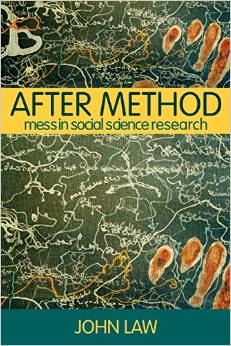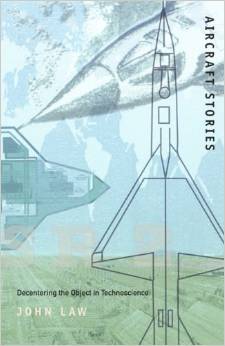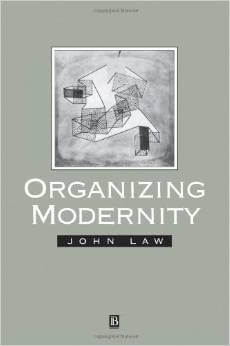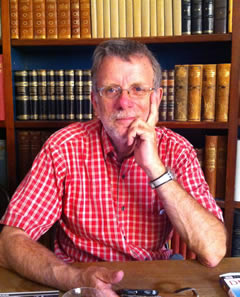Bernal Prize 2015: John Law
John Law is one of the most accomplished and recognized scholars in the field of Science and Technology Studies. His work has been an important source of inspiration for several generations of STS scholars across the world.
Known especially as a founder of Actor-Network Theory, John has conducted groundbreaking studies of co-existing modes of ordering, complexities, ambivalences, topologies, and their political implications.
After completing a Bachelor of Science in economics at University College, Cardiff, John went on to postgraduate work in sociology at Edinburgh, initiating his STS career with the thesis Specialties in Science: A Sociological Study of X-ray Protein Crystallography. Following a postdoctoral fellowship at Manchester, John then spent 25 years at Keele, holding a Professorship at the time of his move to Lancaster in 1998. He then spent 12 years at Lancaster, where he played a key role in securing the international reputation of Lancaster’s Centre for Science Studies.
Over the past five years, as Professor of Sociology at The Open University, John has been co-directing the UK’s Centre for Research on Socio-Cultural Change. As an Emeritus Professor, he continues to work tirelessly, introducing crucial STS insights into the social sciences particularly by highlighting the performativity of methods – quantitative and qualitative alike. He also continues to engage in a multitude of collaborations, from Amsterdam to Taiwan.
John’s publications are among the most cited works in the science and technology studies literature. His five authored books include the titles Organizing Modernity, Aircraft Stories, and After Method. His nine edited collections include Power, Action and Belief; A Sociology of Monsters; Actor Network Theory and After; Complexities; Shaping Technology – Building Society; Picturing Power; and Mapping the Dynamics of Science and Technology.



In addition to six edited theme issues of journals, John has published 50 articles and book chapters since 2010 alone, from a total of 203 articles and book chapters across his career.
The array of empirical objects he has engaged is immense, including the technologies of early Portuguese explorers, salmon farms, foot and mouth disease, military aircraft, management accounting systems in a nuclear physics laboratory, metrics in the sciences, and citizens committed to improving the welfare of farm animals.
John Law’s conceptual interventions and innovations have long served as formative, generative points of orientation and translation for a vast array of scholars, including not only science and technology studies, but also sociology, geography, anthropology, organisation studies, and beyond.
Please join us in congratulating Professor John Law as winner of the 2015 John Desmond Bernal Prize of the Society for Social Studies of Science!
Acceptance
I would like to thank the committee for my nomination. I have been extraordinarily lucky over forty years to work with three generations of friends and colleagues. I was present at the brilliant creation of SSK by my PhD Edinburgh School mentors. What luck! Subsequently I was blessed to work with CSI friends on what became actor-network theory. We had no idea that we were creating a pan-disciplinary multinational monster, but at the time it was very exciting and demanding. More recently I have been equally fortunate to work with a network of gifted younger scholars on the material semiotics of ‘after actor-network theory’. Again this has been both difficult and thrilling – and I still don’t think we have worked out the implications of an ontological politics. Most recently, my work on nature-culture and post-colonial ways of knowing has been entirely collective. This writing has been and remains difficult, challenging and uncertain. Who knows what we are creating? I don’t think we know, though I hope we are exploring the framing of knowledges and their asymmetrical intersections in a world that acknowledges the shifting character of difference rather than essentialising or denying it. But what is most important in the present context is that all of this work has been profoundly collaborative. I am deeply grateful to all my friends, colleagues and students: this nomination is as much for your work as it is for mine.
I am interdisciplinary by inclination. Surely disciplinary boundaries don’t mean very much. At the same time I am deeply committed to STS. It is therefore a truly humbling honour to be nominated as recipient of the 2015 J.D. Bernal Prize. I thank you for that honour.
Bio
John Law took his PhD at the Science Studies Unit at the University of Edinburgh, and worked at Keele and Lancaster Universities before moving to the Open University where he is now Emeritus Professor of Sociology. He has worked empirically on actor network theory, and its successor projects including material semiotics, methods, nature and culture, and post-colonial STS. His books include Organising Modernity, Aircraft Stories, and After Method.
2015 Bernal Prize Committee
Madeleine Akrich (CSI-I3, Mines ParisTech, France)
Gary Downey (Virginia Tech; chair)
Knut Sørensen (NTNU, Norway)
Lucy Suchman (Lancaster U, UK)

